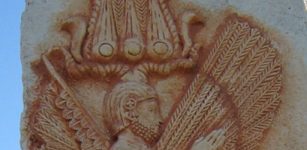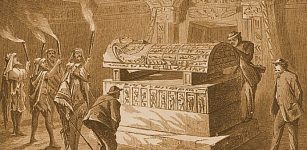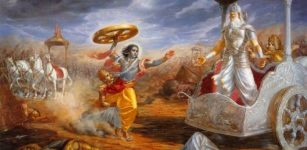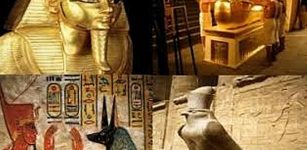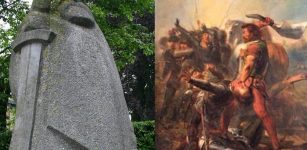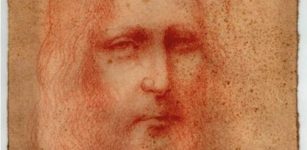On This Day In History: Dante Alighieri Famous For His ‘Divine Comedy’ Born – On May 9, 1265
AncientPages.com - On May 9 (or about this day), 1265, Dante Alighieri was born in Florence, Italy.
He was the Florentine writer, Italy's national poet, best known for his epic poem La Commedia, later named La Divina Commedia (The Divine Comedy).
Engraving after the fresco in Bargello Chapel, painted by Giotto di Bondone in the 14th century. Detail on Dante's eye was originally never filled in, but in 1840 a painter named Marini did a touch-up job on Giotto's painting of Dante, filling in the eyeball. Refer to page 59 of Michael Caesar's Dante, the Critical Heritage, 1314(?)-1870. Image credit: - source. Public Domain
Many details of his life are uncertain, and the dating of his works is difficult.
His distant ancestors were descendants of the Roman soldiers who settled along the Arno River. He married Gemma Donati in about 1283.
The Divine Comedy is considered one of the greatest works of the medieval period. It is a Christian's view of man's eternal destiny and draws on Dante's experience when he was exiled from Florence.
Dante holds a copy of the Divine Comedy next to the entrance to Hell, the seven terraces of Mount Purgatory and the city of Florence, with the spheres of Heaven above. This fresco painting is by Domenico di Michelino (1465). Photographer: Jastrow, Self-photographed - Public Domain
The work takes the form of a journey through hell, purgatory, and paradise, with insightful views of societal and personal problems.
The poem itself is divided into three sections, Inferno, Purgatorio, and Paradiso, and traces Dante's journey from darkness to light.
One can see in the Divine Comedy, the fascination with the symbolism of numbers, especially the numbers 3 and 9. Both hell, purgatory, and Paradise have 9 levels (3 × 3). Hell, and part of the Divine Comedy is referred to by the phraseological relation" Dantean scenes", denoting events that are shocking, terrible, and awe-inspiring. This expression usually describes the behavior of the crowd overwhelmed by panic, despair, at the moment of disaster, cataclysm.
The Divine Comedy was a groundbreaking poem, as it was written in Italian instead of Latin. Afterward, Italian became the literary language of western Europe for centuries.
AncientPages.com



